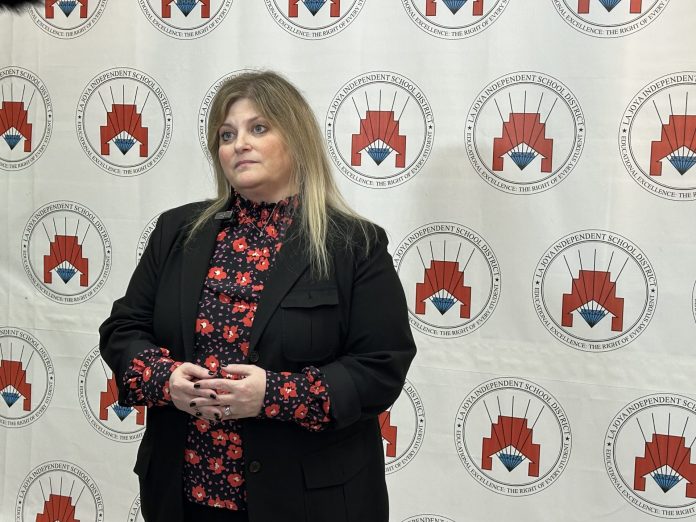
|
Only have a minute? Listen instead
Getting your Trinity Audio player ready...
|
The La Joya Independent School District policy barring employees from holding public office has caused a ripple effect well outside of the district’s boundaries resulting in multiple resignations, prompting cities to call special elections — all at the cost of the taxpayer.
The policy, approved in April, prohibits employees who are equal to or above an assistant principal, center office employees that have the responsibility of public funds, and administrators or supervisors of other employees from holding public office.
“I think it’s just to ensure that what has happened here in the past doesn’t repeat itself and to ensure that integrity is what we’re moving forward with, in terms of how we serve the district,” District Superintendent Marcey Sorensen said in April.
Following a board meeting on June 13, Sorensen said she anticipated some impact in other communities over the policy but the intent was to ensure the district is never put in harm’s way or put in an area of conflict moving forward.
But where did the origin of this policy come from?
The Monitor tried to find out from Sorensen herself.
Despite initial calls for transparency when she took over, multiple requests for an interview with Sorensen submitted to Blanca Cantu, the district’s public relations and communications coordinator, went nowhere.
Multiple calls to Sorensen’s cellphone also went ignored.
However, Melissa Holmes, a Texas Education Agency media relations specialist, said this is the first time a policy of this kind has been implemented in an appointed board of managers.
The policy set off a string of resignations.
Laura Patricia Solis, the former mayor of La Grulla, was among the first to resign. Solis is the principal of Patricio Perez Elementary School.
Three more elected officials resigned from their positions in the following months.
La Joya ISD police chief Leonardo “Lenny” Sanchez resigned from the San Juan City Commission in May, a position he had held since 2018.
Sanchez addressed the commissioners and constituents during a San Juan City meeting on June 11.
“I had to discuss this with my family and so forth,” Sanchez said during public comment. “We made a decision. I have two passions and I have to pick one of them, and it’s the one that pays my bills.”
Jose Luis Perez, an assistant principal, submitted a resignation letter in May to the Palmview City Council.
Perez Served on the council since 2018.
Most recently, Jose Roel “J.R.” Flores, director of federal programs at the district, resigned from the Peñitas City Council.
And one district employee has been fired.
Isidro Casanova, the mayor of La Joya had his employment terminated on May 17 due to alleged violation of public officer prohibition under the district’s policy, according to an email sent to The Monitor by his attorney.
Casanova is appealing the termination and is challenging the constitutionality of the enacted policy.
As for the cities of Peñitas, Palmview, San Juan and La Grulla, they will all have a special election next month to fill the vacancies.
All four special elections will come at a cost to the city’s taxpayers.
Hilda Salinas, the Hidalgo County Elections Administrator, said the estimates for the cost of running the special elections in the mentioned cities have not been finalized yet.
Salinas said the variables behind the cost to run an election include how many voting machines the cities want and the amount of polling locations.
“Every year is different,” she said. “There are vacancies that do come about with various cities and schools … it’s something that does happen each and every year let’s just say and we’re ready for it.”
Andrew Smith, a UTRGV assistant professor in the Department of Political Science, said he has not seen a policy like this be implemented in Texas.
With multiple special elections set to take place next month, Smith said people might be confused on what is happening which could add to the possible low voter turnout.
“It’s harder to get the word out to your average person, that there is even a (regularly scheduled) election,” he said.
He added that the policy is in uncharted waters, but that the long-term effect may be for the best of the district.
“I think this policy raises a lot of free speech and free association concerns,” Smith said. “It certainly raises a lot of questions on the need to crack down on the mismanaged ISD versus the right of the voters to decide who they want to represent them.
“I think inevitably this was going to happen.”



